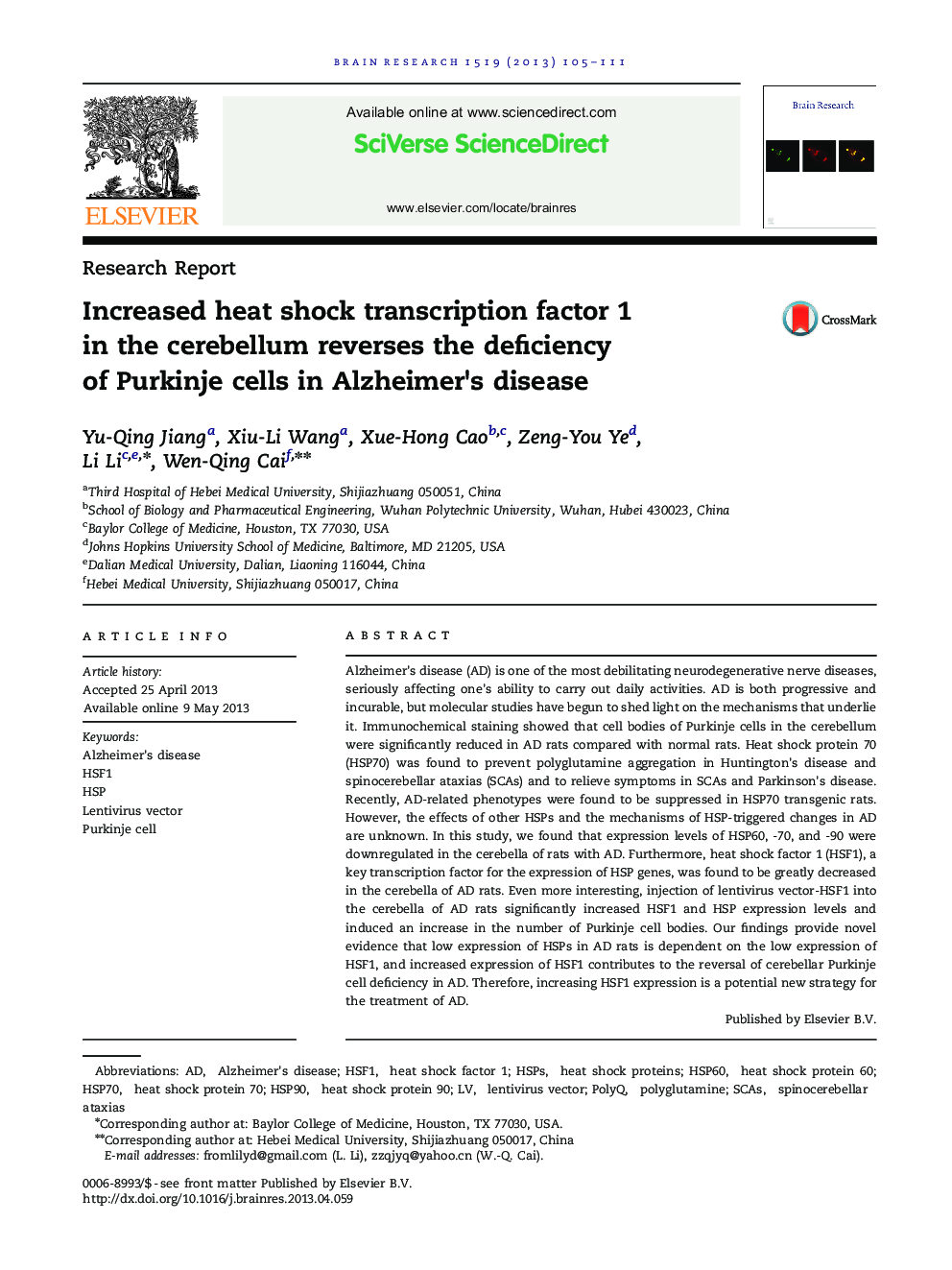| کد مقاله | کد نشریه | سال انتشار | مقاله انگلیسی | نسخه تمام متن |
|---|---|---|---|---|
| 4324613 | 1613920 | 2013 | 7 صفحه PDF | دانلود رایگان |

• Low expression HSF1 induced HSPs decreased in AD rats.
• Loss of Purkinje cells number was shown in the cerebellum of AD rats.
• Overexpress HSF1 increased HSPs expression level and modified the deficiency of Purkinje cells.
• Thus, HSF1 is a new effective strategy to treat AD.
Alzheimer's disease (AD) is one of the most debilitating neurodegenerative nerve diseases, seriously affecting one's ability to carry out daily activities. AD is both progressive and incurable, but molecular studies have begun to shed light on the mechanisms that underlie it. Immunochemical staining showed that cell bodies of Purkinje cells in the cerebellum were significantly reduced in AD rats compared with normal rats. Heat shock protein 70 (HSP70) was found to prevent polyglutamine aggregation in Huntington's disease and spinocerebellar ataxias (SCAs) and to relieve symptoms in SCAs and Parkinson's disease. Recently, AD-related phenotypes were found to be suppressed in HSP70 transgenic rats. However, the effects of other HSPs and the mechanisms of HSP-triggered changes in AD are unknown. In this study, we found that expression levels of HSP60, -70, and -90 were downregulated in the cerebella of rats with AD. Furthermore, heat shock factor 1 (HSF1), a key transcription factor for the expression of HSP genes, was found to be greatly decreased in the cerebella of AD rats. Even more interesting, injection of lentivirus vector-HSF1 into the cerebella of AD rats significantly increased HSF1 and HSP expression levels and induced an increase in the number of Purkinje cell bodies. Our findings provide novel evidence that low expression of HSPs in AD rats is dependent on the low expression of HSF1, and increased expression of HSF1 contributes to the reversal of cerebellar Purkinje cell deficiency in AD. Therefore, increasing HSF1 expression is a potential new strategy for the treatment of AD.
Journal: Brain Research - Volume 1519, 26 June 2013, Pages 105–111